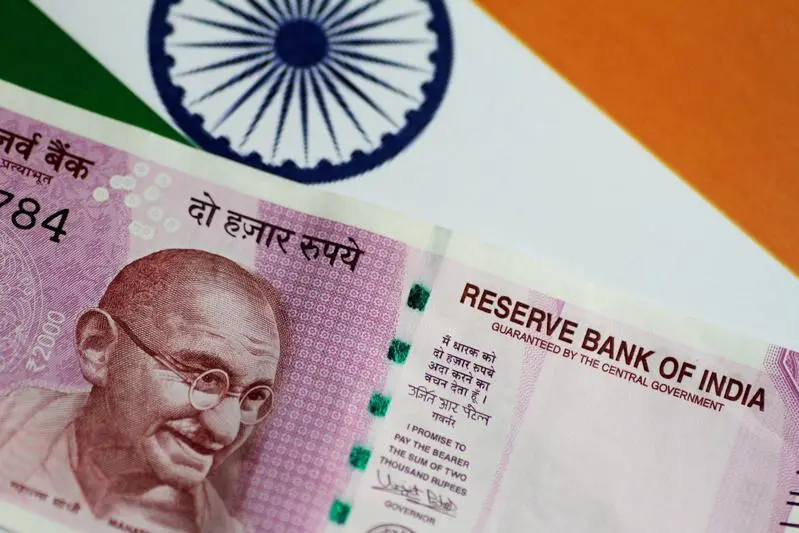PHOTO
UAE - The plunge of the Indian currency on Monday to a record low level against the dollar-pegged dirham sparked a sudden surge in remittances from the UAE and other Gulf countries, with some exchange houses reporting up to 25 per cent rise in volume.
Most money exchange houses are bracing for a steady increase in the number of expat remitters over the coming days as the Indian currency is forecast to go further south, even crossing 70 per dollar mark.
On Monday, the battered Indian rupee plumbed new depths to an all-time low of 69.62 per dollar (18.97 per dirham) in early trade, tracking broader weakness in other emerging market currencies on concerns of a spill-over from a crisis-hit Turkey, where the lira has been on a freefall over escalating tensions with the US.
However, later on Monday, the rupee reversed marginally from its record lows to trade at 69.53 to the dollar (18.94 per dirham), reportedly on intervention from the Reserve Bank of India to stem a sharp fall. However by closing, the currency hit 19.04 per dirham after peaking to 19.06.
Promoth Manghat, CEO, UAE Exchange Group, said across all outlets in the country, there was an almost 25 per cent spike in remittance volume when compared to normal days.
"Remittances to India have been on the higher side over the past few months due to volatility in the Indian currency, and are subject to further increase, leading to remitters getting more value for every dirham they send back home," said Manghat.
The UAE, along with other GCC countries with dollar-pegged currencies, have been a major source market for inward remittances to India, which reached $69 billion in 2017, according to the World Bank.
Adeeb Ahamed, managing director, LuLu Financial Group, said the all-time low rates of the rupee would benefit expats who have been holding their money back hoping for better rates.
"We do anticipate a further hike in remittances to the Indian sub-continent in the coming days as the rupee gets weaker."
"With Asian offshore markets along with Indian markets taking a beating, we feel that the Indian rupee could further hit 70.20 against the dollar in the coming few days, which mean it could reach 19.10 against the dirham," said Ahamed.
Pradeep Unni, head of Strategic Business Development, Richcomm Global Services DMCC, said at this juncture, the Rs70 to a US dollar seems to be easy each, but the RBI has been intervening at regular intervals to curb volatility.
"Rs19 to a dirham is not difficult to reach, but it is unlikely to stay at those levels for a longer time frame as a quick rebound is expected. Investors, traders and exporters who trade with India should ideally hedge the Indian rupee and currency risk on Dubai Gold & Commodities Exchange in order to protect against such sharp currency movements," said Unni.
"Over the next few days, we are likely to see higher remittances to India, on better exchange rates, but being the second week of the month, the quantum of funds sent is likely to be lesser. Most remittances for family expenses in India and other commitments are generally sent by the first week of the month," said Unni.
"The Indian Rupee has been on the decline for a few months and plunged to its lowest against the dollar. The decline comes as the Turkish lira weakened sharply against the dollar, putting all emerging market currencies in a state of flux. On the other hand, the dollar has been gaining steadily, pegged against the basket currencies. The sudden weakness in INR is mostly due to global risk-off. Concerns over India's growing trade deficit and short term liabilities persist, but the rupee looks relatively well placed," said Manghat.
Currency analysts said contagion fears from the Turkey crisis and broader weakness in emerging market currencies had afflicted the rupee. "At this point of time, investors seem to prefer only the greenback as the ultimate safe haven, forcing even precious metals to see a massive slide. The Turkish lira has fallen about 45 per cent against the dollar this year on worries over Turkish President Tayyip Erdogan's increasing control of the economy and a deepening diplomatic rift with the United States," said Unni.
Analysts observed that rising concerns of trade war has forced the investors to exit emerging market economies and India is feeling the pressure too despite India being in a far better economic status than other emerging nations. The high prices of oil has been increasing the import burden for India for the last few months, but the recent stability in oil prices and Opec's decision to increase production to curb prices is a respite.
Copyright © 2018 Khaleej Times. All Rights Reserved. Provided by SyndiGate Media Inc. (Syndigate.info).





















